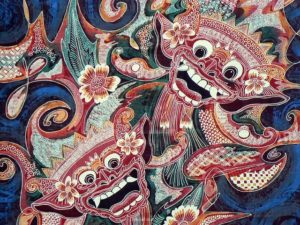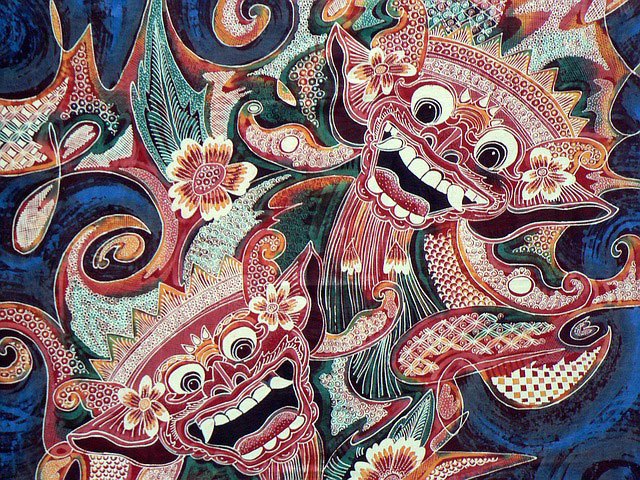Today we’re turning our looks to the country that happens to be a home to over 700 indigenous languages. If it didn’t come to your mind instantly – we`re speaking about Indonesia!
The origin of Indonesia’s national language
Indonesia’s official language is Indonesian (or Bahasa Indonesian), a standardized form of Malay, which serves as the lingua franca of the archipelago. The vocabulary of Indonesian borrows heavily from regional languages of Indonesia, such as Javanese, Sundanese, and Minangkabau, as well as from Dutch, Sanskrit, and Arabic. Depending on how you define a language and how you count its number of speakers, today Malay-Indonesian ranks around sixth or seventh in size among the world’s languages. The Indonesian language is primarily used in commerce, administration, education, and the media. Since Indonesia recognizes only a single official language, other languages are not recognized either at the national level or the regional level, thus making 80% of Indonesians bilingual.
The diversity behind the language
Indonesia is extremely culturally diverse. In fact, there are over 300 ethnic groups in Indonesia, each with their own customs, traditions, and dialects. This diversity has formed mainly because of the very interesting geography of the country. The different climate, nature, time zones and the multiple islands separated from each other but still inhabited by natives have helped in the forming of the diverse Indonesian culture. An interesting fact worth mentioning is that there are more than 17,000 islands in the territory of Indonesia, of which only 6,000 are inhabited by people! The archipelago really is huge and it takes over 12 hours of flying time to get from one end of the country (Northern Sumatra) to the other (West Papua Guinea).
The thriving of Indonesian’s literature
 As we already mentioned, Indonesians are overwhelmingly bilingual. Indeed many people have a good command of three or four languages. Although there are several newspapers in English and Chinese, their circulation is relatively small and Indonesian is by far the dominant language in the country’s print media. Indonesia hosts a sparkling variety of traditional verbal arts (poetry, historical narratives, romances, drama, etc.) which are expressed in local languages, but modern genres are expressed mainly through Indonesian. Modern literature (novels, short stories, stage plays, free-form poetry, etc.) has developed since the late years of the 19th century and has produced a big amount of internationally recognized pieces. As a matter of fact, Indonesians are working very hard on globalizing their literature. A leading idea of this movement is that “translation is key to Indonesian literature going global”. In 2015 Indonesia made a big step by being featured as a guest of honor on the Frankfurt Book Fair – the biggest and oldest book festival. Since then the global publishing industry is giving Indonesia a warm welcome as it becomes privy to the richness and diversity of Indonesian literature and culture.
As we already mentioned, Indonesians are overwhelmingly bilingual. Indeed many people have a good command of three or four languages. Although there are several newspapers in English and Chinese, their circulation is relatively small and Indonesian is by far the dominant language in the country’s print media. Indonesia hosts a sparkling variety of traditional verbal arts (poetry, historical narratives, romances, drama, etc.) which are expressed in local languages, but modern genres are expressed mainly through Indonesian. Modern literature (novels, short stories, stage plays, free-form poetry, etc.) has developed since the late years of the 19th century and has produced a big amount of internationally recognized pieces. As a matter of fact, Indonesians are working very hard on globalizing their literature. A leading idea of this movement is that “translation is key to Indonesian literature going global”. In 2015 Indonesia made a big step by being featured as a guest of honor on the Frankfurt Book Fair – the biggest and oldest book festival. Since then the global publishing industry is giving Indonesia a warm welcome as it becomes privy to the richness and diversity of Indonesian literature and culture.
Indonesian in the translation industry
If this leads you to the conclusion that the Indonesian translation industry must be growing, you wouldn’t be wrong. It is actually booming in recent years! The good news is that Bahasa Indonesian isn’t considered to be a challenging language in localization terms. Indonesian uses the Latin alphabet; therefore font selection isn’t a challenge like in other emerging Asian languages, so the language is supported across virtually all programs and platforms.
Because the language becomes more accessible, business with Indonesia becomes even easier. With its political stability and some of the most impressive economic growth figures in the region, Indonesia presents major opportunities for companies investing in ASEAN. With its diverse culture and traditions, we believe Indonesia is a country of endless knowledge and unforgettable experiences which makes it a perfect place for both – tourism and business.
